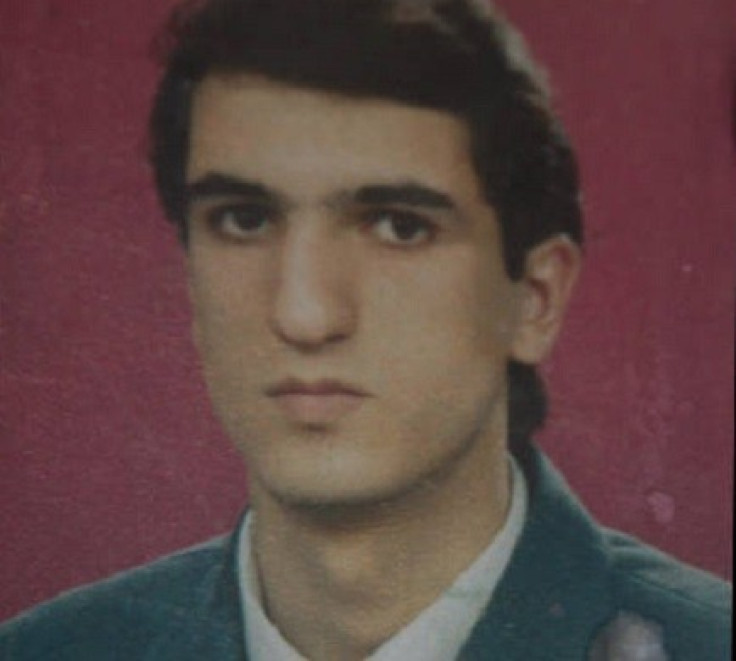İrfan Eskibağ: Why Turkish Prisons Smell of Death for Kurdish Prisoners [BLOG]
The death of Kurdish political prisoner İrfan Eskibağ can be laid at the door of the supposedly independent Istanbul Institution of Forensic Medicine

İrfan Eskibağ, a 41-year-old Kurdish political prisoner suffering from pancreatic cancer, lost his life at one minute past midnight on Wednesday, 8 May. Eskibağ had been in prison for 10 years.
Eskibağ's health had been in critical condition for a long time. When he was held in Bolu F Type Prison, he was diagnosed with hepatitis and was transferred to Ankara Sincan F Type Prison for treatment in January 2011. He was diagnosed with pancreatic cancer at Ankara Numune Education and Research Hospital in June 2011 and had a medical operation. The doctors terminated the radiotherapy and chemotherapy recently "as there was nothing left to do."
The report prepared by the hospital said he should be released from prison as his disease had been diagnosed at a late stage and prison conditions would cause a further deterioration in his health. Authorities continued to incarcerate him until he lost his life.
The report was submitted to the Istanbul Institution of Forensic Medicine. Idris Baluken, deputy chairman of the Peace and Democracy Party (BDP), told the Ministry of Justice on 1 May that Eskibağ was not even able to meet his personal needs and asked the institution to accelerate the process for his release.
The forensic report was never published, preventing Eskibağ from spending his last days with his family.
"I stayed with my brother at hospital for 20 days. The state killed my brother," Rıza Eskibağ said.
"It was obvious my brother would die. But they did not release him. The biggest criminal is the Institution of Forensic Medicine. The prosecutors waited for the forensic report to release my brother. But the institution did not submit the report. I spoke with my brother one week before he died. He still had hope. He believed that he would be released and get well outside."
Irfan Eskibağ was taken in handcuffs to hospital for treatment. His brother maintained that he became ill because of prison conditions: "It was not a suitable ward for cancer patients. It was airless and on the ground floor."
His other brothers, Timur and Hacı, said that Rıza Eskibağ wanted to spend his last days with his family after his health worsened but he was not allowed to.
"They are destroying everyone who stands up against the opinions of the state. It seems that the duty of state is to make its own citizens suffer," Hacı said.
Irfan's lawyer said: "There is no explanation for not allowing a deadly ill person to say goodbye to his family.".
State committing murders
Medical reports of independent hospitals are not taken into consideration when an ill prisoner applies to the authorities for release but have to go through the Institution of Forensic Medicine for a ruling. That costs the lives of many sick prisoners.
"We are faced with an immoral, inhumane and insistent attitude. We are screaming. The prisoners who should be protected by the government are killed at the hands of the government," Metin Bakkalcı, secretary general of the Human Rights Foundation of Turkey (TIHV), said.
"The authorities have committed a crime according to even our insufficient municipal law, let alone international law and the treaties we have signed. The state is committing murders openly and blatantly. We will not be silent on that."
The institution has been denounced by human rights organisations for violating medical ethics, adopting a vengeful attitude towards ill prisoners and functioning as a political institution, not a scientific one.
According to the report of the Prison Commission of the Human Rights Association, there are 411 sick prisoners in Turkey and 230 prisoners are severely ill. One hundred and twenty-one are near death and 108 of them need extremely urgent treatment.
Most of those prisoners have become ill through being tortured in prison or because they have not been treated properly for wounds sustained during their capture.
Releasing all political prisoners is one of the main demands of the Kurdish political movement and human rights defenders to achieve a just and sustainable peace.
They call on Turkish authorities to immediately release all sick political prisoners and provide them with proper treatment as a reassurance that the government is committed to resolving the Kurdish issue.
The Ankara branch of the Prison Commission of the Human Rights Association gathers in front of the Ministry of Justice every Friday to ask for the release of ill prisoners.
And they are calling out to the authorities: "İrfan Eskibağ has died and 230 people are seriously ill in your prisons. Who is next? Whose death will you watch this time?"
Uzay Bulut is a freelance journalist based in Ankara
© Copyright IBTimes 2024. All rights reserved.





